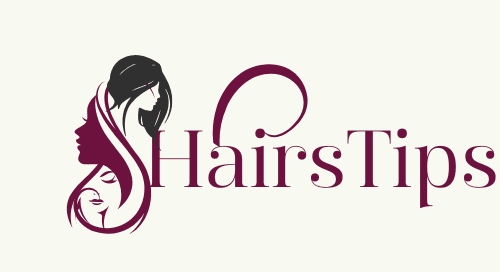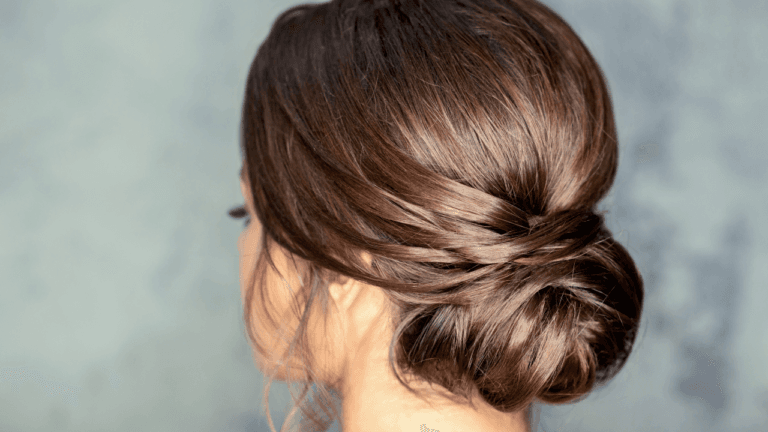Mask for Dehydrated Hair can be really tough to handle. It makes your hair look dull, frizzy, and more likely to break. This can happen from using too much heat, chemical treatments, or just from the environment. A deep conditioning treatment is key to bring back moisture and life to your hair.
Hair masks are made to deeply moisturize your hair. They’re designed to tackle issues like dryness, damage, and lack of shine. They’re a strong solution for dry hair.
When looking for a good hair repair mask, find ones with natural oils, proteins, and humectants. The Briogeo Don’t Despair, Repair! Deep Conditioning Mask ($39) and the Rahua Omega Hair Mask ($58) are great choices. They have ingredients that help hydrate and strengthen your hair.
If you’re on a budget, try the Amika Flash Instant Shine Hair Mask ($30). It works fast, giving your hair shine in just 60 seconds.
To get the most out of your hair mask, use it on wet or damp hair once a week. This lets the ingredients deeply nourish your hair. While conditioners are good for daily use, a hair mask gives your hair that extra hydration and repair it needs.
Key Takeaways
- Mask for Dehydrated Hair can be caused by heat styling, chemical treatments, and environmental factors
- Deep conditioning treatments like hair masks target specific concerns and provide intense hydration
- Look for hair masks with nourishing ingredients like natural oils, proteins, and humectants
- Apply hair masks to wet or damp hair once a week for best results
- Hair masks offer benefits such as damage repair, frizz reduction, and overall hair health improvement
Understanding Dehydrated Hair: Causes and Effects
Dehydrated hair is a common problem for both men and women of all ages. It happens when hair lacks moisture, making it dry, dull, and brittle. Knowing the causes and effects of dehydrated hair is key to keeping your hair healthy and preventing damage.
What is Dehydrated Hair?
Dehydrated hair lacks moisture in the hair shaft. It can affect any hair type and happens for many reasons. Signs of dehydrated hair include:
- Loss of elasticity
- Increased frizziness
- Dullness and lack of shine
- Increased split ends and breakage
Common Causes of Hair Dehydration
Many things can cause hair dehydration, including:
- Excessive heat styling: Using hair dryers, straighteners, and curling irons too much can dry out hair.
- Chemical treatments: Perms, bleaching, and coloring can weaken hair and cause dehydration.
- Environmental factors: Sun, low humidity, and wind can make hair dry and dehydrated.
- Lack of proper hydration: Not drinking enough water or eating the right foods for hair health can lead to dehydration.
“Dehydrated hair can affect anyone, but it’s more common as people get older. Taking good care of your hair and eating well are important for keeping it healthy and hydrated.” – Rabeya Khanom, Trichologist and Cosmetologist at Hair Tips
Effects of Dehydrated Hair on Appearance and Health
Dehydrated hair not only looks bad but also harms hair health. Problems with dehydrated hair include:
- Increased susceptibility to breakage and split ends
- Difficulty in styling and managing hair
- Dull, lifeless appearance
- Increased risk of further hair damage from styling and environmental stressors
To fight dehydrated hair, you need a good hair care routine. This includes deep conditioning, using leave-in conditioners, and using less heat. Also, eating a balanced diet with vitamins and omega-3 fatty acids helps hair health from the inside.
Key Ingredients to Look For in a Hydrating Hair Mask
When looking for a hydrating hair mask, check the ingredients list carefully. Look for nourishing ingredients and hydrating components to revive your dry hair. Here are some key elements to watch for:
Essential Oils for Nourishment
Essential oils for hair are crucial in a hydrating hair mask. Oils like argan, coconut, and sunflower deeply condition and protect hair. The Peach Hair Mask, for example, combines peach kernel oil, macadamia, argan, and coconut oils. Together, they moisturize and enhance softness and shine.
Hydrating Agents: Glycerin and Aloe Vera
Glycerin and aloe vera are key hydrating components to look for. They keep hair moist and healthy. Aloe vera also soothes the scalp and promotes hair growth.
Proteins: Keratin and Silk
A protein hair mask is great for dry hair. Keratin and silk strengthen the hair shaft, improving texture and health. The Peach Hair Mask includes hydrolyzed soy protein to enhance hair strength. It also has vitamin E to make hair shinier and silkier.
“Hair masks deliver a deeper hit of nutrition compared to regular conditioners, benefiting all hair types, including dry, healthy, curly, color-treated, and long hair.” – Mark Townsend, Celebrity Hairstylist
When picking a hydrating hair mask, focus on nourishing ingredients and hydrating components. A good protein hair mask with essential oils for hair can greatly revive your dry hair.
Top Recommended Hydrating Hair Masks on the Market
There are many hair masks for dry hair out there. You can find affordable options and premium treatments. We’ll compare and review top brands to help you choose.
Product Reviews for Leading Brands
The Olaplex Hair Perfector No. 3 is great for repairing hair bonds. It’s a home treatment that works well as an overnight mask. Darshana is also popular for moisturizing dry hair without making it heavy.
If you’re on a tight budget, try the Aussie 3 Minute Miracle. It’s quick, affordable, and comes in different formulas like Strong and Moist. Prices start at just $3.
Comparison of Key Features
When looking at hair masks, consider what they’re made of, what hair type they’re for, and what benefits they offer. Some masks fix damage from bleaching and perming, while others focus on hydration. Out of 25 tested, 14 were top picks for hydrating hair masks after a 6-week test.
“I’ve tried countless hair masks, but the Best for Curly Hair mask has been a game-changer. Not only has it improved the overall health of my curls, but I’ve also noticed significant hair growth in both length and thickness.”
Price Range and Value Analysis
Hair masks range from $3 to $75. More expensive masks might have special ingredients and benefits. But, think about the value for your money.
The Best for Damaged Hair mask needed a lot to cover evenly, which might affect how long it lasts. The Best Bond Repair mask, though small, only needed a little for each use. This makes it a better deal over time.
Finding the right hair mask depends on your hair needs, budget, and what you like. Look at reviews, features, and value to find the best mask for your hair. For more advice, visit our contact page.
DIY Hydrating Hair Masks: Recipes You Can Try at Home
Looking for a natural way to care for your hair? Try making your own hair masks with kitchen ingredients. These recipes are full of vitamins and healthy fats that hydrate and repair your hair. Plus, you can make them fit your hair’s specific needs.
Coconut oil is a top pick for hair masks. It deeply moisturizes your hair, making it soft and shiny. It also helps prevent breakage. Mix 1 tablespoon of coconut oil with 1 tablespoon of honey for a simple mask.
Avocado and Honey Hair Mask
Avocados are great for hair masks too. They add shine, moisture, and help hair grow. Mash one ripe avocado and mix it with 2 eggs, 1 tablespoon of honey, and 1 tablespoon of coconut oil. Apply it to your hair for 30-45 minutes before rinsing. This mask is great for damaged or dry hair.
Coconut Oil and Yogurt Mask
Yogurt is good for a protein boost in your hair care. It gently exfoliates the scalp and strengthens hair. Mix 2 tablespoons of plain yogurt with 1 tablespoon of coconut oil. Apply it to your hair for 15-20 minutes before rinsing with cool water.
Banana and Olive Oil Blend
Bananas are also great for your hair. They condition and moisturize your hair. Mash one ripe banana and mix it with 2 tablespoons of olive oil. Apply it to your hair for 30 minutes before rinsing with cool water. This mask reduces frizz and adds shine.
“DIY hair masks can be a great addition to your hair care routine, even between salon visits. They’re easy, affordable, and offer many benefits for your hair.” – Emily, Beauty Blogger
When making your own homemade hair masks, remember they might not last as long as salon products. But, they still offer a good boost of moisture and nourishment. Try different recipes to find the best one for your hair.
How to Properly Use a Hair Mask for Best Results
Using a hair mask right is key to getting the best results. It helps keep your hair healthy and hydrated. By following the right steps, you can make your hair soft, shiny, and easy to manage. Learning how to use a hair mask is a big part of hair care.
Application Techniques for Optimal Coverage
Start with damp, towel-dried hair when applying a hair mask. Put the product on the mid-lengths and ends, where damage is common. Use a wide-tooth comb or your fingers to spread it evenly.
For better results, cover your hair with a shower cap or warm towel. This helps the mask nourish your hair deeply.
Frequency of Use: How Often Should You Apply?
How often you use a hair mask depends on your hair type and the mask. Generally, use a hair mask once a week. But, if your hair is very dry or damaged, use a hydrating mask two to three times a week.
If you have oily hair, stick to once a week to avoid too much buildup. Curly hair might need more frequent use, while very straight hair should limit it to twice a week.
“Hair masks provide nutrients, moisture, and long-lasting benefits for dull or damaged hair.”
Steps to Enhance Mask Effectiveness
To get the most from your hair mask, follow these steps:
- Leave the mask on for 10-20 minutes, or longer for deep conditioning.
- Rinse it out well with cool water to seal the hair cuticles.
- Use a gentle shampoo and conditioner after rinsing.
- Apply heat during the treatment to improve absorption and effectiveness.
By following these hair care tips, you can make your hair mask work better. This will help you get the healthy, shiny hair you want.
Common Mistakes to Avoid When Using Hair Masks
Hair masks can greatly improve dry, damaged, or dehydrated hair. But, using them correctly is key to avoid hair mask mistakes. Here are some common errors to watch out for.
Overusing Hair Masks
It’s tempting to use a hair mask every day. But, overuse can cause product buildup and weigh down your hair. Use a small amount, like a nickel-sized amount for short hair and a quarter-sized amount for longer hair. This avoids buildup and keeps your hair healthy and bouncy.
Ignoring the Ingredients List
Not all hair masks are the same. It’s important to pick one that fits your hair type and needs. Always check the ingredients list to avoid irritants or ingredients you shouldn’t use. Look for nourishing ingredients like argan oil, shea butter, coconut oil, and keratin. These are great for dry hair because they moisturize and restore.
“Finding the right hair mask is a personal journey. What works for someone else may not work for you, so it’s important to experiment and listen to your hair’s unique needs.” – Sarah, hair care expert
Not Rinsing Thoroughly
After using a hair mask, make sure to rinse it out well. This prevents residue that can make your hair look greasy or dull. Use cool water to rinse, as it seals the hair cuticles and keeps moisture in. This makes your hair shinier and easier to manage. Make sure to remove all the product to avoid buildup.
By avoiding these mistakes and using hair masks correctly, you can nourish your dehydrated hair. This leads to healthier, more vibrant hair.
Maintaining Hydrated Hair Tips Beyond the Mask
Using a hydrating hair mask is a great way to add moisture to your hair. But, to keep your hair healthy, you need a full hair care routine. The right products and techniques can greatly improve your hair’s look and health.
Importance of a Good Hair Care Routine
A good hair care routine is key to keeping your hair moist and nourished. A survey found that 95% of people think washing hair less often helps keep it moist. Most people wash their hair once a week.
By not washing too much, your hair’s natural oils can spread evenly. This gives your hair moisture and protection.
Choosing the Right Shampoo and Conditioner
Choose a moisturizing shampoo and conditioner that fit your hair type. Look for ingredients like glycerin, aloe vera, and natural oils. 80% of people prefer low-sulfate shampoo to keep their hair color vibrant.
70% of people avoid harsh sulfates that dry out hair. These ingredients can harm your hair’s moisture.
“I’ve noticed a significant improvement in my hair’s moisture levels since switching to a sulfate-free, moisturizing shampoo. It’s made all the difference in keeping my hair healthy and hydrated.”
Environmental Factors: Humidity and Heat Protection
Humidity and heat can dry out and damage your hair. To fight frizz, use products that protect your hair. Always use a heat protection spray or serum when styling with heat tools.
By following these tips and using a good hydrating hair mask, you can keep your hair moist and healthy.
Signs You Need to Replace Your Hair Mask
Using your favorite hair mask regularly might show it’s not working as well as before. This could mean it’s time for a new one. Hair mask expiration is a real issue, and knowing when to switch is key.
Monitoring Changes in Hair Texture and Feel
Notice how your hair feels and looks after using your mask. If it’s drier, breaks more, or doesn’t improve, it’s time for a change. Hair masks are best used 1-3 times a week for deep conditioning.
When to Switch to a New Formula
Different hair masks meet different hair needs. If you’ve changed your hair care routine, your hair might need something new. Look for signs like split ends, frizzy hair, or brittle strands. Choose masks that hydrate, smooth, strengthen, define curls, protect from heat, or repair damage.
Consult a Professional: When to Seek Advice
If you’re not sure about your hair mask, ask a professional. A skilled hairstylist can help pick the right products for you. They can also teach you how to use your hair mask correctly. This ensures your hair stays healthy and beautiful.

















[…] Styles for Short 4c Hair are great for keeping your short natural hairstyles healthy and looking… Best Hydrating Hair Mask for Dehydrated Hair TreatmentMask for Dehydrated Hair can be really tough […]